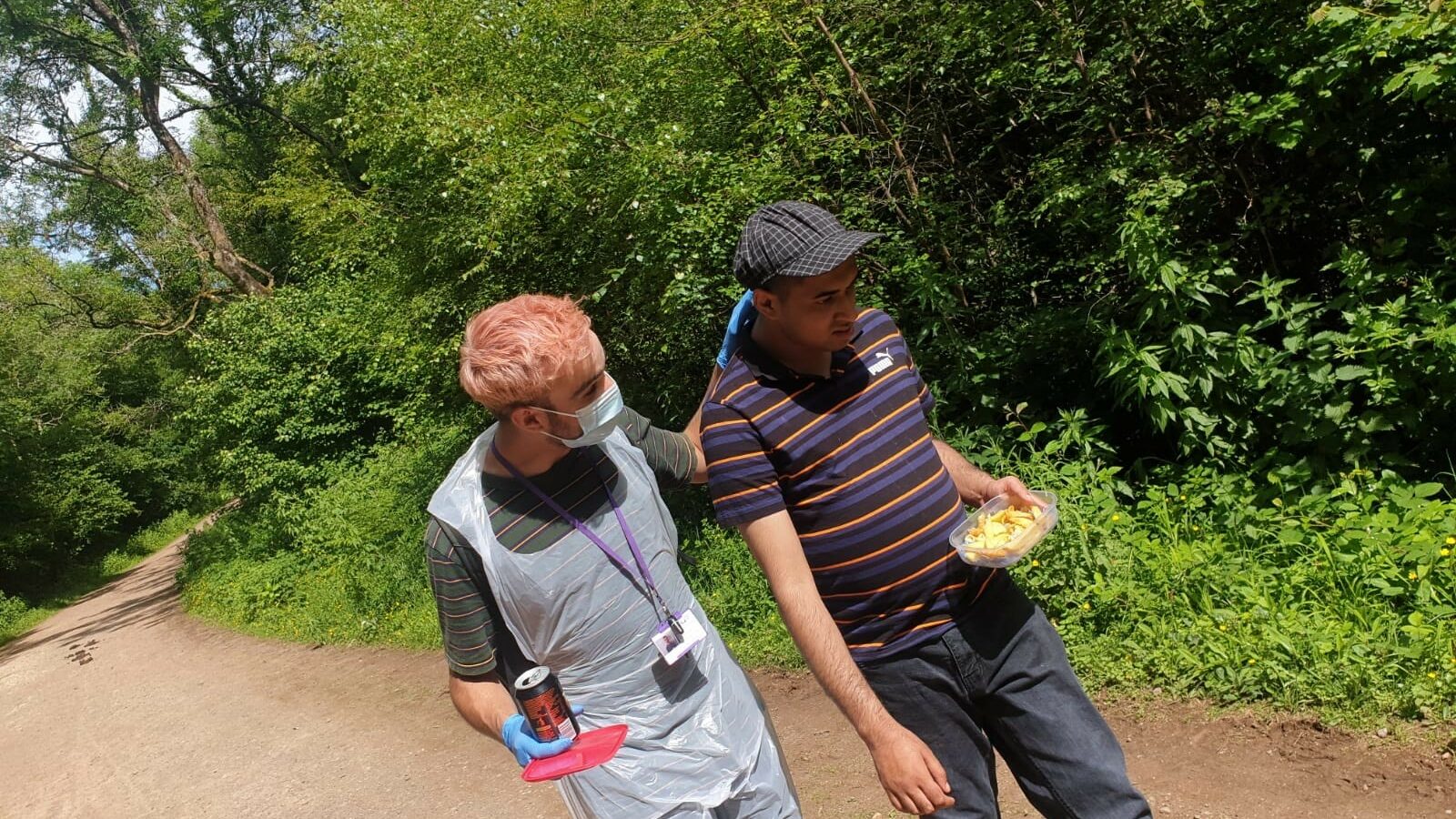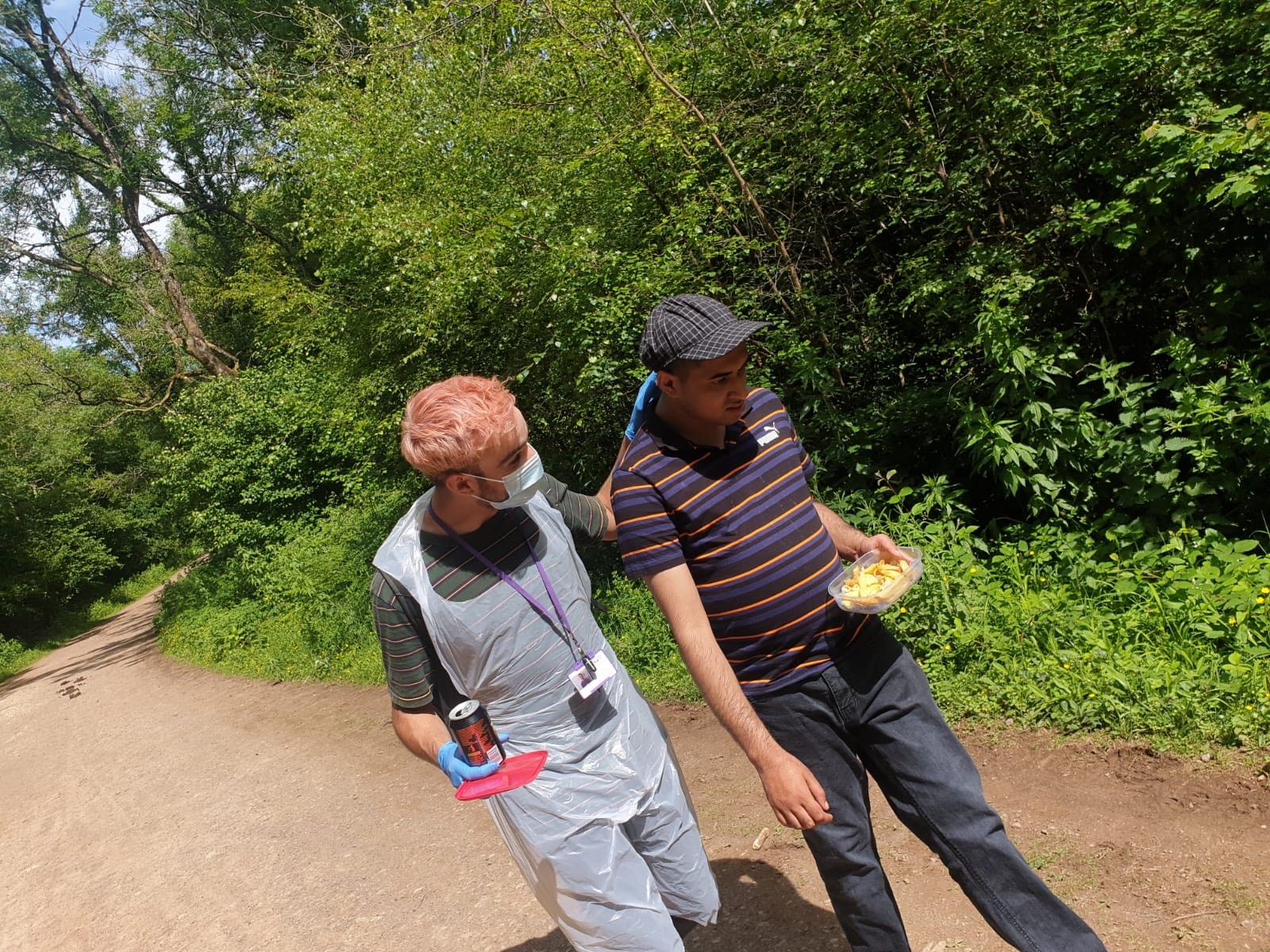Over the past year, I have been a support worker at the National Autistic Society Cymru Centre in Cardiff. We provide specialist support for people with autism, some of whom also have learning disabilities. I’ve seen first hand how supporting people in the community can transform lives; it’s clear to me that there should be more of this provision.
Reading shocking stories in recent years about people with autism being stuck in mental health hospitals and assessment and treatment units prompted me to find out more about them. Though they may benefit some people in the short term, they are inherently not equipped for long-term stays. Despite this, many people live in them for years.
Alternatives must be found to this systemic institutionalisation of people with autism. Here is a story of my journey and the importance of supporting people in the community, near their family and friends.
When we talk about quality of life, we are referring to the health, happiness and comfort of an individual. A core aim of social care is to enhance the quality of life of the people we support – but this is not a one size fits all issue. Meeting the varying needs of those benefiting from support demands a compassionate, person-centred and empowering approach. It is vital to consider what quality of life looks like for each individual and what measures must be put in place to achieve this.
During my induction, we discussed the social model of disability – that an individual is not inherently disabled but society disables them by failing to enable their inclusion. Adopting this perspective sets the tone for recognising potential in those we support, and taking responsibility for creating a welcoming society for all groups of people. It equips support workers with the capability to understand the individuals receiving support which, in turn, leads to more effective and compassionate care.
Each person we support has a thorough plan which is reviewed and amended regularly. This plan helps staff to understand individual needs, recognise mounting anxiety and provide support accordingly. Preferred activities, dreams and aspirations and early indicators of stress are all encompassed in this plan, which helps each person live the life they want.
Preventing crisis
It is our responsibility to ensure we respond appropriately and develop more effective communication and coping strategies to prevent people falling into crisis. Throughout the service, it is recognised that all behaviour, including that arising from distress, is a form of communication, indicating what an individual wants and needs.
A culture of person-centred, compassionate care prevails throughout our centre. As a staff member, I have felt valued and been given opportunities to develop. We are encouraged to share our opinions and team meetings are regularly held. This allows each support worker to propose their own ideas, working together to find creative solutions to any issues. This maintains good morale and creates an environment conducive to the growth and development of the people we support.
This understanding and training does not mean everything always goes to plan. When this happens – for instance where staff misunderstand the intention behind a particular behaviour – it is reflected on with senior members of staff.
We are encouraged to consider how we might deal with a similar situation in future and develop from our own experiences. I believe this open dialogue and discussion go a long way towards ensuring that the people we support are protected and staff are the best they can be. Each of these aspects helps to foster a shared ethos among those working in our services: that the people we support are at the forefront of everything we do.
All progress is celebrated by the support team. A well-run service is able to change the lives of many people and their families. We need more of these services around the country so we can avoid people becoming stuck in institutions.
I know a lot of people and organisations, including the National Autistic Society, are campaigning to make this a reality. This can only happen if UK governments invest in the social care and community mental health services that autistic people need.






